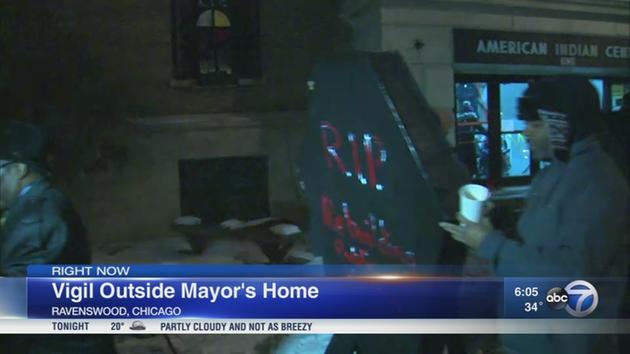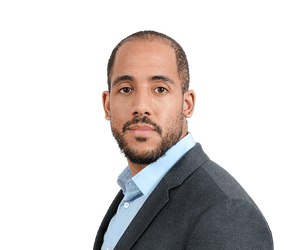'Demolish that lie': James Forman Jr takes on Black Lives Matter backlash
The son of a prominent civil rights leader argues in a new book, Locking Up Our Own, that the ‘black on black crime’ trope is based on a false premise – and lays much of the blame for America’s carceral crisis at the feet of the political class

‘In terms of addressing crime issues in the black community, the dominant political class has historically refused to endorse the full slate of reforms along lines of education, economic security, housing, etc, necessary to address the root causes.’ Photograph: Alamy
Jamiles Lartey
@JamilesLartey
Saturday 29 April 2017 07.00 EDT Last modified on Monday 1 May 2017 10.06 EDT
In the conservative backlash to the
Black Lives Matter movement, deflection to “black on black” crime has become a meme. Why, op-eds and pundits sputter, does the black community get so riled about police violence and yet remain silent about the gun and drug crime that savages so many of its own?
James Forman Jr, son of civil rights leader
James Forman Sr, knew from his time as a public defender in Washington DC that such broadsides are patently wrong. In his new book,
Locking Up Our Own, he goes beyond the broader argument – that it’s reasonable to expect more from sworn law enforcement than from street criminals – to make clear that the charge is simply wrong on face value too.
“I think of it as a 239-page rebuttal to the claim that black people and their elected leaders only care about crime when it’s [committed by] the police,” Forman told the Guardian. “If there’s one thing that I hope the book does, it’s demolish that lie.”
His book sets up camp, however, on a deeply uncomfortable truth. Over the past half-century, in moments when black leadership has had the power to direct policy, such leaders have reliably chosen to embrace the types of “tough on crime” tactics that have led the US to becoming the most carceral nation in the world. For the most part, such leaders did so with the broad support of constituents seeking safety from the urban crises that colored the second half of the 20th century.
“The words and deeds of … black law enforcement officials and politicians,” Forman writes, “so often overlooked in the histories of the war on drugs, are crucial to explaining why and how the war developed as it did in American cities.”
Now a professor at Yale Law School, Forman has Washington in his sights. The city was known, at various point through the century, as both “Chocolate City” and “America’s murder capital”. Forman worked there as a public defender for six years in the 1990s, at the tail end of its most violent years.
What was going on? How did a majority-black jurisdiction end up incarcerating so many of its own?
James Forman Jr
He opens with a question that gnawed at him as he argued in front of black judges and juries, against black prosecutors and for black clients who were, in many cases, arrested by black officers in a city that was about 70% black:
“What was going on? How did a majority-black jurisdiction end up incarcerating so many of its own?”
In many cases, what was being handed down was the type of hardline answer to crime usually placed solely at the feet of conservatives like Richard Nixon and Ronald Reagan. But in Washington, for example, it was a black electorate and leadership that killed a 1975 bill to decriminalize marijuana.
“This was not a story in which a white majority, acting out of indifference or hostility to black lives, imposed tough criminal penalties that disproportionately burdened a black minority,” Forman writes.
“Quite the opposite: the leaders of the decriminalization effort were white and … it was blacks who killed marijuana decriminalization in DC.”
In the 1980s, this trend toward punitive justice continued. A 1982 ballot initiative to enact harsh mandatory minimum sentences for violent criminals passed in a landslide, with more support in black and poor districts than in their whiter and more affluent equivalents.
There was broad support, in Washington and elsewhere, for tough penalties for gun crime and the distribution of hard drugs.
For PCP dealers, said the Los Angeles Sentinel, a prominent black newspaper, in 1980, “no punishment was too harsh”. Such dealers deserved to be “tarred and feathered, burned at the stake, castrated, and any other horrendous thing which can be imagined”, editors opined. The column was signed: “The Los Angeles Sentinel and the rest of the Black Community”.
The reasons for such attitudes are many, but Forman finds explanations more interesting than simple moral panic. To some extent, such draconian policy could be traced to the chaste sobriety that nationalism – such as the pro-black nationalism that was ascending at the time – tends to bring in tow.
Forman quotes from a speech by Kwame Ture, formerly known as Stokely Carmichael, in 1970: “Fighting against drugs is revolutionary because drugs are a trick of the oppressor.”
Forman also suggests such hardline policies were in part a reaction to historic underpolicing of black communities. “For 400 years black lives are never protected,” he said, adding that black leadership, when finally achieved, was then “bound and determined to do something different which produced this kind of extra vigilance”.
In his book, Forman writes: “To many African American observers, the revolving door” by which criminals would be punished lightly and let go “was discriminatory”.
“It spun fastest for the criminals who victimized blacks.”
‘To say it’s a fraught topic is correct’
The book is long on disclaimers, seeking to avoid claims of victim blaming or anything similar. Forman is clear: everything he outlines happened or is happening under the macrocosm of white supremacy, which imposes the reality that fosters crime and the constraints that winnow down possible responses.
He acknowledges that his unique pedigree, via his father and his career as a public defender, may have offered him some degree of cover.
“To say it’s a fraught topic is correct and I was very conscious the entire time of potential missteps,” he said.
In his text, Forman seeks to ensure that readers understand his perspective. He relays one story, from his time as a public defender, in which a prosecutor refused to offer one of his clients drug treatment in lieu of a jail sentence because she had been admitted to such a program before, on a prior charge.
“And yet,” he writes, “our system never treated the failure of prison as a reason not to try more prison.”
It’s bona fides like that which give Forman license to complicate our memory of the “war on drugs”, and to issue the following warning: “In terms of addressing crime issues in the black community, the dominant political class has historically refused to endorse the full slate of reforms along lines of education, economic security, housing, etc, necessary to address the root causes.
“But if the ‘quarter loaf’ is going to be law enforcement, it’s better to have no loaf. For black people in America, we can’t make this mistake again.
 nikka did you even read the thread?
nikka did you even read the thread?









